The first LSI-Gurdon International Ph.D. Meeting was successfully held on July 24th, 2020, which covered cutting-edge interdisciplinary research related to life sciences and is consisted of three sessions: ‘Genome Editing’, ‘Developmental Biology’ and ‘Cancer Biology’. Over 100 students and faculty members from Zhejiang University and the University of Cambridge attended the meeting on site or online.
The meeting began with an introduction by Prof Qi Zhou from LSI, who presented prolific achievements, academic exchange, graduate education, as well as the core facilities of LSI. This is followed by short presentations by a number of LSI faculties including Prof Xinhua Feng, the director, which summarize their research directions.


Prof Qi Zhou Prof Xinhua Feng
Then Prof Eric Miska, the deputy director of the Gurdon Institute, introduced the organization, research focus and vision, and the vibrant research environment of the Gurdon Institute. Videos of “Meet our Group leaders” series were played with each describing the research focus of individual faculty members at the Gurdon Institute.

Prof Eric Miska
Following the introduction session, nine academic presentations were delivered by students from both LSI and the Gurdon Institute, with a special focus on developmental biology and cancer biology.
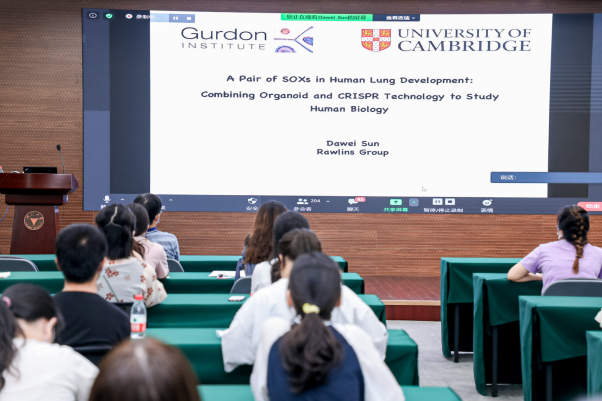
Dawei Sun, from the Gurdon Institute, developed efficient pipelines for CRISPR-mediated gene targeting and inducible knock-downs in human organoid systems, which will be illustrated by investigating the functions of SOX proteins in developing human lungs.

Xiaojie Ma, from LSI-ZJU, presented her research on small molecules which promote CRISPR/Cpf1-mediated genome editing in human pluripotent stem cells.

Domenic Pilger, from the Gurdon Institute, showed how he explored the DNA damage response by phenotypic and functional CRISPR/Cas9 screens.
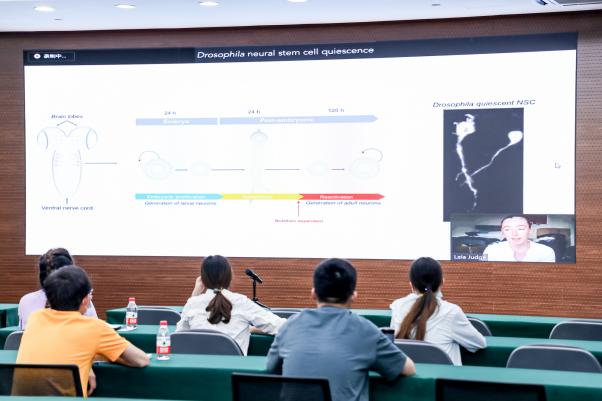
Leia Judge, from the Gurdon Institute, identified a novel nuclear localised lncRNA that is strongly upregulated in reactivating NSCs compared to quiescent NSCs.
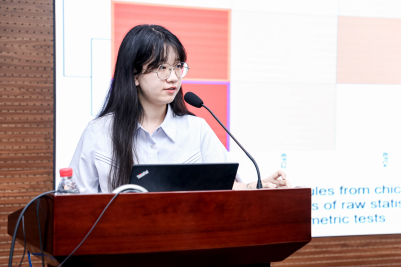
Wen Kang, from LSI-ZJU, presenting her work on the evolution of avian digits.
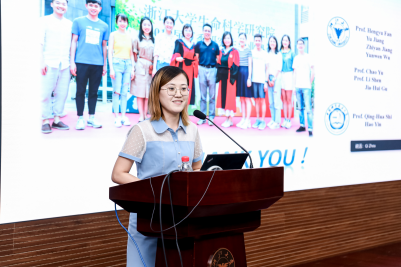
Xingxing Dai, from LSI-ZJU, presenting the mRNA degradation promoted by CNOT4-regulated CCR4-NOT complex from zygotene to pachytene is crucial for spermatogenesis.
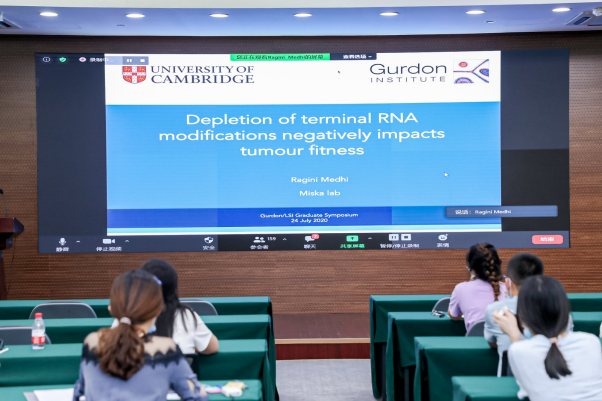
Ragini Medhi, from the Gurdon Institute, presenting the novel findings that aids in understanding the complex TUT4/7-mediated regulation and helps assess TUT4/7 as a target for anti-cancer therapeutics.
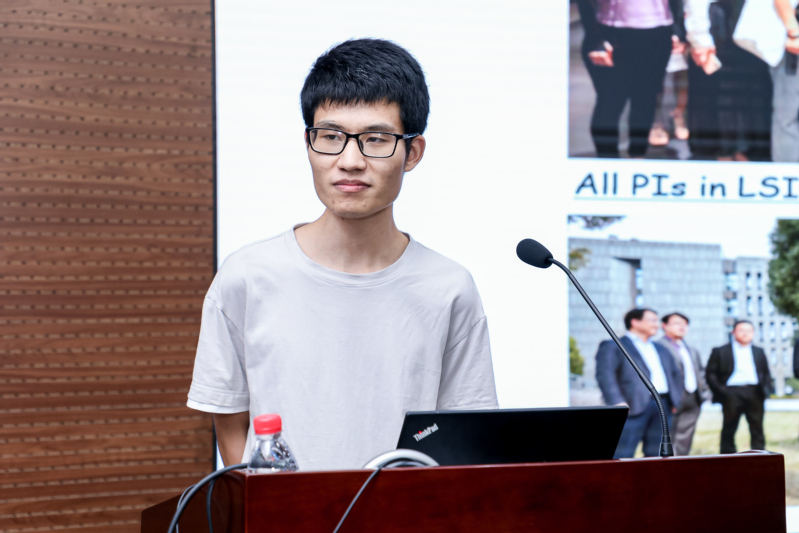
Fubo Ji, from LSI-ZJU, presenting that liver-specific female-biased CYP39A1 is a strong suppressor of HCC development.
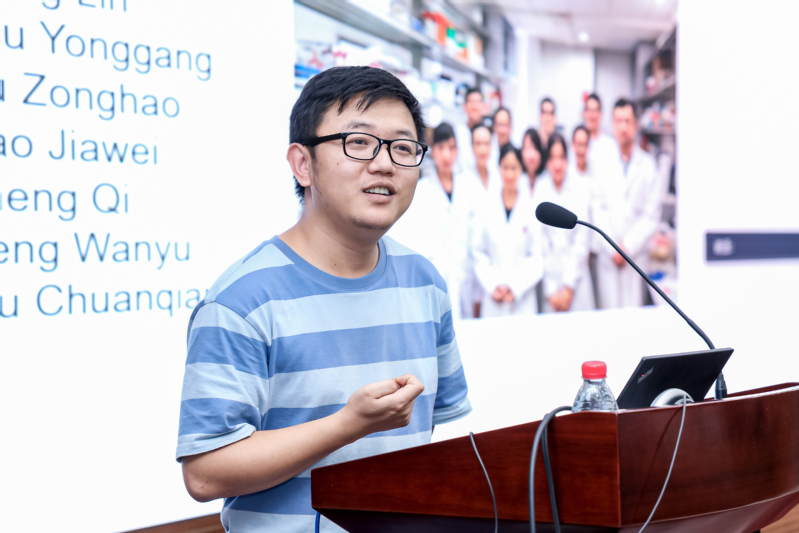
Qingzhe Wu, from LSI-ZJU, presenting that YAP activation enhances the chemoresistance in NE SCLC tumor cells by downregulating GSDME, while inactivation of YAP in Non-NE SCLC tumor cells switches cell death from apoptosis to pyroptosis.
The meeting has been viewed by many as a great platform for scientific exchanges, which will help establish the long-term partnership between the two world-leading institutes in biomedical research.
Miao Shi(writer)



